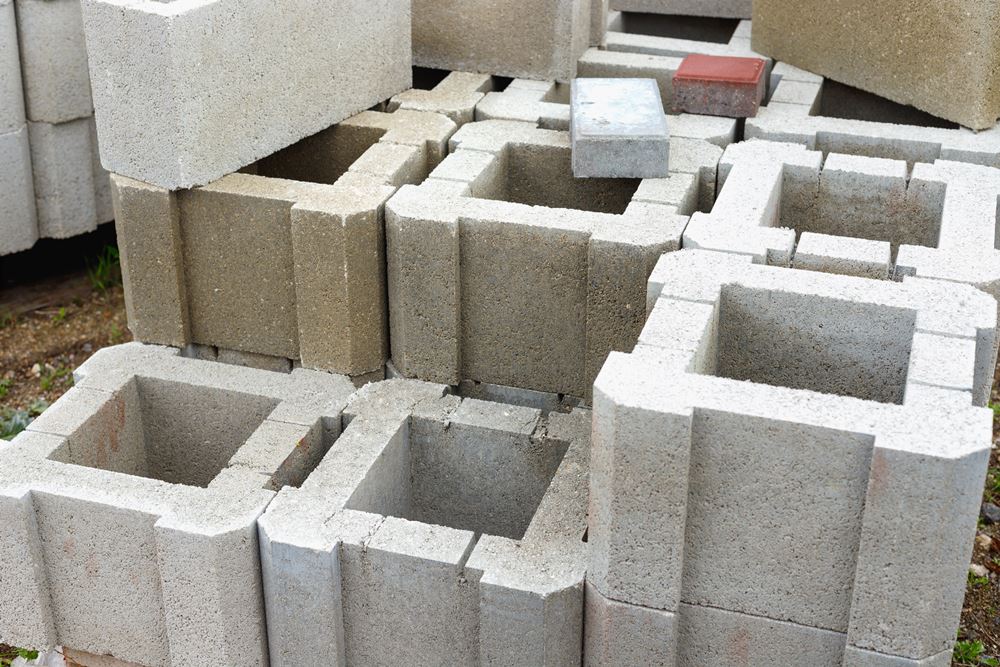Concrete and cinder blocks share some fundamental elements, but a vital ingredient makes all the difference. Concrete and cinder blocks are different, although they are also easily confused.
Understanding Cement Block, Cinder Block, & Concrete Block Differences
In construction, choosing the right type of block is crucial. This guide will help you understand the differences between cement blocks, cinder blocks, and concrete blocks, along with their best uses.
Cement Block
People know cement blocks for their strength and durability. People often use them in load-bearing masonry walls, providing a sturdy foundation capable of withstanding high pressure. These blocks are essential for constructing robust and long-lasting structures.
Load-Bearing Walls:
Cement blocks are ideal for constructing load-bearing walls in residential and commercial buildings. Their strong and dense composition allows them to support heavy loads, creating a stable base for tall buildings. People use them in building retaining walls and basement walls because of their durability and ability to withstand pressure.
Soundproofing & Thermal Insulation:
Because of their density, cement blocks offer excellent soundproofing and thermal insulation properties. These windows are great for buildings like schools, hospitals, and offices where reducing noise and saving energy are important.
Cinder Block
Cinder blocks, or breeze blocks, weigh less than cement blocks and people typically use them in non-load-bearing walls. Made using fly ash, these blocks are ideal for interior partition walls because of their lightweight nature and ease of handling. Cinder blocks are readily available at local stores for do-it-yourself projects.
Non-Load-Bearing Walls:
Contractors frequently use cinder blocks, which are lighter than cement blocks, in constructing non-load-bearing walls. These blocks are easy to handle, reducing labor costs and construction time. They are suitable for interior partition walls and garden walls.
DIY & Landscaping Projects:
Cinder blocks are popular in DIY projects and landscaping because of their affordable price and ease of use. People commonly use them for building raised garden beds, outdoor seating, and fire pits. Their lightweight nature allows for creative and flexible design applications in outdoor spaces.
Concrete Block
Concrete blocks, also known as concrete masonry units (CMUs), are versatile and used in various construction applications. They offer a balance between strength and weight, making them suitable for both load-bearing and non-load-bearing structures. Contractors widely use concrete blocks in residential and commercial construction for their robustness and functionality.
When planning your construction project, consider the specific requirements of your build to choose the right type of block. Each type—cement, cinder, or concrete—has unique properties that make it suitable for different applications. Understanding these differences will help ensure your project’s success and durability.
Versatile Construction Applications:
Concrete blocks, also known as CMUs, are usable in various construction projects. They are suitable for both load-bearing and non-load-bearing walls, providing structural integrity and flexibility in design. People often use CMUs in constructing walls, partitions, and foundations.
Fire Resistance and Durability:
Concrete blocks are strong and fire-resistant, making them a popular choice for building safe structures that can withstand fires. People often use them in constructing commercial buildings, schools, and industrial facilities where fire safety is very important. Additionally, their low maintenance requirements make them an economical choice for long-term construction projects.

